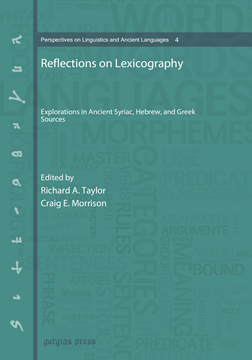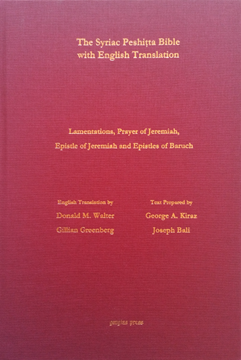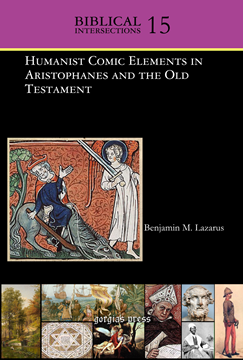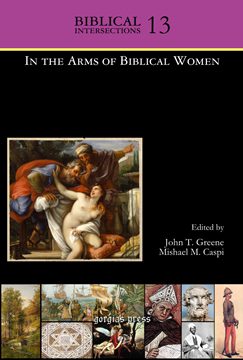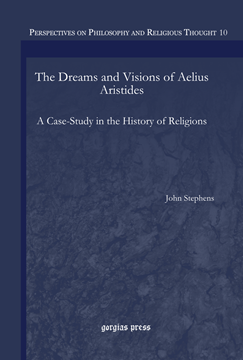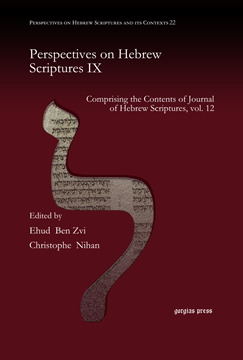Reflections on Lexicography
Explorations in Ancient Syriac, Hebrew, and Greek Sources
Edited by Richard A. Taylor & Craig E. Morrison
ISBN: 978-1-4632-0229-3
Colloquia of the International Syriac Language Project. These essays offer a probing analysis of selected lexical tools and methods for working with ancient Syriac, Hebrew, and Greek sources, as well as offering reflections on methodological concerns for lexicographical tools of the future.
$183.00 (USD) $109.80 (USD)
Lamen., Prayer & Ep of Jer, 1/2 Ep of Baruch According to the Syriac Peshitta with Eng. Tr.
English Translation by Donald M. Walter & Gillian Greenberg; Text Prepared by George Anton Kiraz & Joseph Bali
Series: Surath Kthob 23
ISBN: 978-1-4632-0230-9
This volume is part of a series of English translations of the Syriac Peshitta carried out by an international team of scholars. The fully vocalized and pointed Syriac text, and the English translation, are presented on facing pages so that both can be studied together. Supplementary information is given in annotations, Addenda, and Appendices.
$150.00 (USD) $90.00 (USD)
Humanist Comic Elements in Aristophanes and the Old Testament
Series: Biblical Intersections 15
ISBN: 978-1-4632-0243-9
Lazarus compares and discusses comic elements used for didactic purposes in two separate literary traditions: Old Testament narrative and Aristophanic Comedies. Given that humour relies on taking people's ideas of what is normal and making them incongruous, this volume examines these very different texts to see how they use that comic incongruity to help define what it means to be human within the hierarchy of the universe.
$192.00 (USD) $115.20 (USD)
In the Arms of Biblical Women
Edited by John T. Greene & Mishael M. Caspi
Series: Biblical Intersections 13
ISBN: 978-1-4632-0231-6
The less-discussed character in the Bible is the woman: two talking animals therein have sometimes received more page space. This volume shines the light of close scrutiny in the less-trodden direction and focuses on biblical and allied women, or on the feminine side of Creation. Biblical women are compared to mythical characters from the wider Middle East or from contemporary literature, and feminist/womanist perspectives are discussed alongside traditional and theological perspectives.
$168.00 (USD) $100.80 (USD)
The Dreams and Visions of Aelius Aristides
A Case-Study in the History of Religions
ISBN: 978-1-4632-0232-3
An analysis of the religious experiences of the Greco-Roman sophist, Aelius Aristides. As a member of the cult of Asclepius, Aristides recorded his nocturnal dreams, waking visions and spiritual healings in a diary entitled the Sacred Tales. A study of this diary sheds light on the spiritual environment of the Roman world in the first and second century CE.
$125.00 (USD) $75.00 (USD)
Perspectives on Hebrew Scriptures IX
Comprising the Contents of Journal of Hebrew Scriptures, vol. 12
Edited by Ehud Ben Zvi & Christophe Nihan
ISBN: 978-1-4632-0420-4
This volume incorporates all the articles and reviews published in volume 12 (2012) of the Journal of Hebrew Scriptures.
$287.00 (USD) $172.20 (USD)
